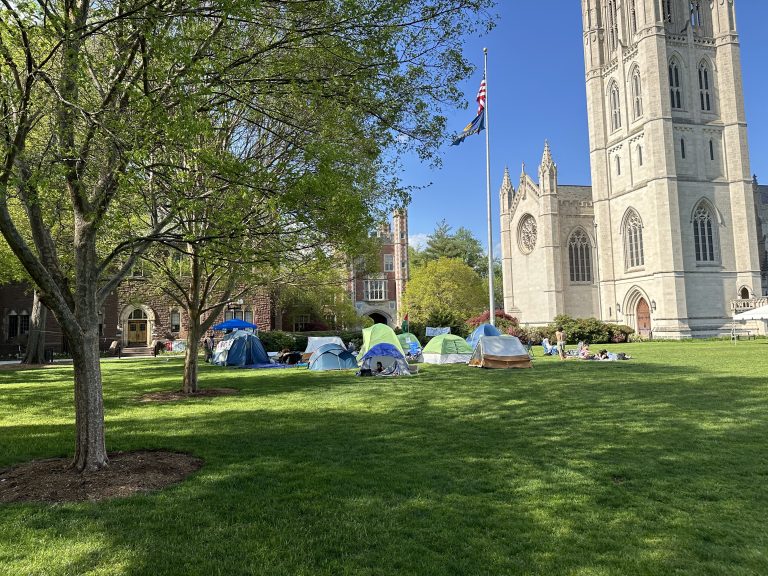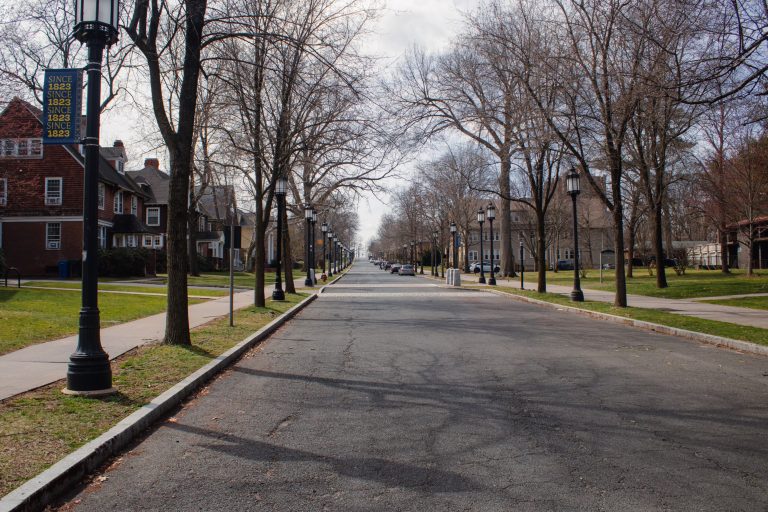KATHERINE ROHLOFF ’19
NEWS EDITOR
Last semester, Trinity’s Dean of the Faculty, Tim Cresswell, rejected a proposal from the Educational Policy Committee (EPC) for the first time in Trinity’s history. For the first time since the Educational Policy Committee’s (EPC) role was changed from an authoritative to an advisory one over a decade ago, the Dean of Faculty has openly rejected a recommendation on which an academic department is granted the ability to hire a new faculty member. The Committee’s recommendation of eight tenure-track lines at the assistant rank included a position in the Political Science Department focused on comparative politics in the global south. Dean Cresswell’s final decision, however, allocated this position instead to a Religious Studies position specializing in Bible Studies.
The EPC consists of five elected faculty members who spend the spring semester reviewing and then voting on the proposals submitted by academic departments that want to hire a new faculty member. The Dean of Faculty acts as a non-voting member of the Committee, sitting in on and contributing to the deliberations. When considering proposals, the EPC takes into account several factors including, but not limited to, contributions to general education, interdepartmental collaboration, and Trinity’s broad based curricular initiatives. Up until 2003, the Committee’s votes were authoritative, so that they had the final say in what academic departments got what positions. In 2003 however, the Trinity faculty voted to change the EPC’s role to an advisory one, meaning that they only have the power to give their final recommendations to the Dean of Faculty. The Dean of Faculty can then decide to either accept or reject those recommendations. This past spring is the first time that the Dean of Faculty has ever declined a final recommendation given by the EPC. The position that was advised by the EPC was one proposed by the Political Science Department for comparative politics in the global south.
The position that was ultimately chosen by Dean Cresswell was proposed by the Religious Studies Department for a position specializing in Bible Studies. When understanding the reasons behind Dean Cresswell’s decision not to accept the EPC’s recommendation, it is important to refer to the Annual Report sent out by the Dean of Faculty to the faculty regarding the EPC and his final decisions. Regarding the Political Science proposal, Dean Cresswell states that, although a “… strong and convincing proposal. What would have made this [proposal] more convincing would have been a more concrete collaboration with International Studies given the clearly international dimensions of the proposal.” He also clarifies that, even though it was part of the EPC’s final recommendation, “This proposal received strong, but not universal, support from the committee.” Stephanie Chambers, chair of the Political Science Department, declined to comment for this story.
In the Annual Report, Dean Cresswell also highlighted his reasons for his support of the Religious Studies proposal. The Religious Studies Department was seeking the return of a position that was reallocated following the resignation of Bible Studies Professor Seth Sanders in 2015. In his decision, Dean Cresswell considered the Annual Report from 2016 that declared that “it is imperative that College replace as soon as possible the Bible position.” He further states that, “There is also clear evidence of the department pro-actively and successfully increasing its service to non-majors across campus.” According to Dean Cresswell, in the cases of the Political Science and Religious Studies proposals, “the votes of the committee were split.” When reached for questions concerning his department’s ultimate win for a faculty placement, Professor Ronald Kiener, Chair of the Religious Studies Department, declined to give any substantial comment. For a department that has been fighting for years to reallocate a position that is at the core of Religious Studies as a whole, the Dean’s decision is seen by most as a win for traditional liberal arts curricula. And even though the Dean’s ultimate decision differed from the EPC’s recommendation for the first time in over a decade, Dean Cresswell states that “I believe the members of EPC did an excellent job and their deliberations were better informed and more substantive than any I have seen elsewhere. All of these decisions are very difficult and there are pros and cons to every proposal. In the end, I disagreed with the majority (but not all) of the committee.”
Thursday, June 6 2024
The Student Newspaper at Trinity College in Hartford, Connecticut








+ There are no comments
Add yours